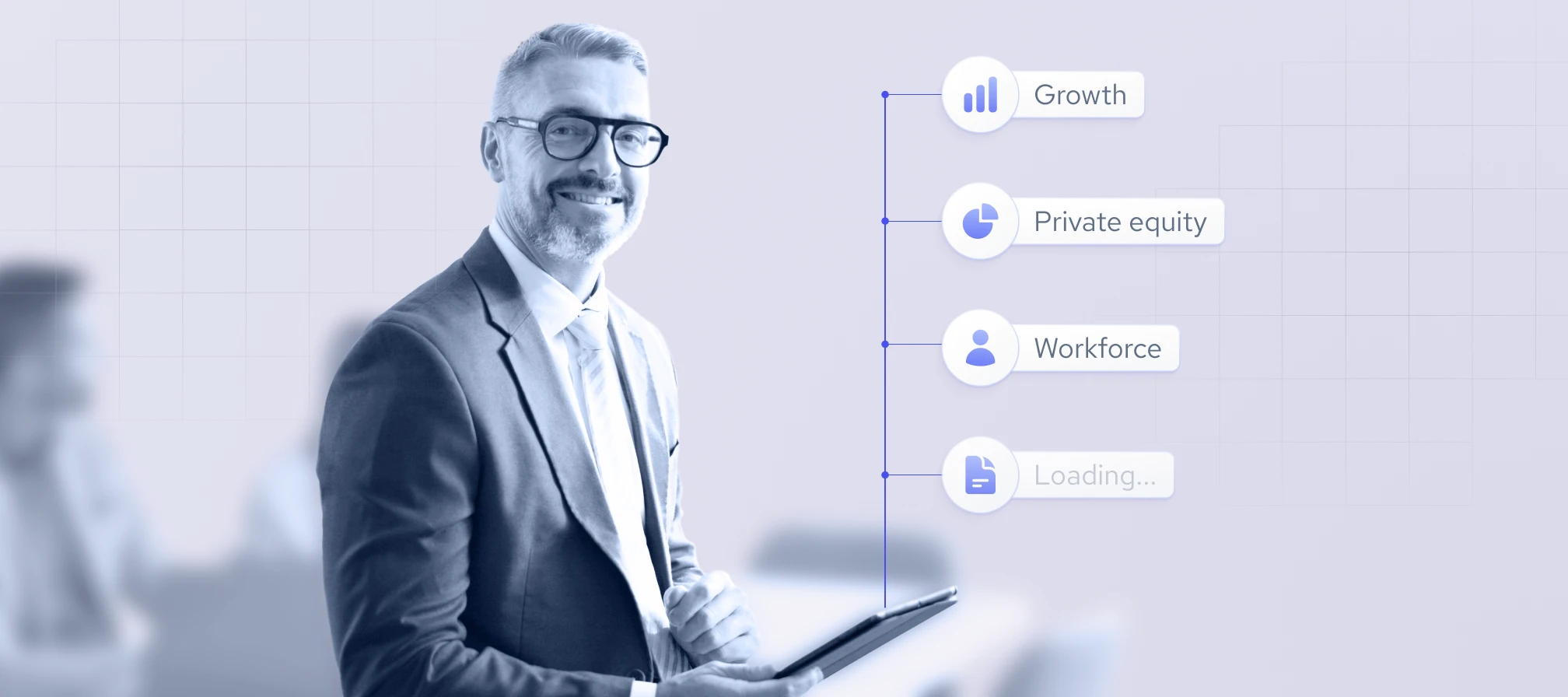It wasn’t too long ago that when people imagined the future, they would think of artificial intelligence such as robots, automatic appliances, and computer programs to help us go about our lives. Today, we seem to be living in the early days of this future. Artificial intelligence (AI) has deeply impacted our day-to-day experiences and interactions at work and even at home.
Such technology has been affecting investment and finance industries for some time now. However, artificial intelligence’s true potential remains to be seen, as hedge funds continue to implement and improve the way they utilize it. This article will explore how AI has evolved in investing, how hedge funds are utilizing artificial intelligence and the future of AI application in investing.
The emergence and growth of artificial intelligence
Although there have been theoretical and practical developments before, AI is said to have originated from the Dartmouth workshop in 1956. It was there that some of the greatest mathematical minds of their generation coined its name, developed new methods, and started designing the building blocks of artificial intelligence.
Since then, the world has been made more aware of what computers can do across various fields. It took some time until AI technology reached a practical level for investors, but in the last decade, financial firms have consistently been discovering the true potential of AI. Refraining from rushing into AI implementation has proven to be a reasonable decision, as the results of introducing AI technology into various fields have been somewhat limited thus far. Likewise, companies have invested around 50 billion dollars in artificial intelligence projects in 2020 but aren’t necessarily seeing immediate returns. According to Harvard Business Review, this discretion is primarily due to a push for technological implementation without proper corresponding business process implementations.
Despite these shortcomings, AI investments are projected to continue at a significant rate in hopes that AI technology will have seamless integrations with other business processes and workflows. While many companies are still searching for ways to see successful returns on AI-based technology, this is not the case for investors. Investment funds seem to have found just the right pace with AI implementation proving their ability to take calculated risks. AI has been tried out carefully in investing and has already shown some substantial results, fueling optimism for its future potential.
Some features of AI, such as machine learning, are certainly too valuable to be overlooked by investors. Therefore, as both AI technology and its investing applications continue to be developed, we will begin to see a growing percentage of hedge funds managed partially by AI.

The application of AI in investing
Although the implementation of artificial intelligence in finance is gradual and still relatively new, AI has already been successfully utilized by financial firms in many ways. Below are some of the most important ways in which hedge funds are continuously applying algorithms and AI-based tools.
Investment intelligence
Most notably, investors use AI-based tools to identify emerging investment opportunities. Algorithms can efficiently scan financial data from traditional and public web data sources and make predictions about the rise or fall of particular stocks. Additionally, AI is used to identify key patterns across various markets to help investors get ahead of upcoming market fluctuations and profit from timely trade deals.
There are still many questions that remain to be answered surrounding data-driven investing. Specifically, data scientists and investors are still navigating the weight that should be placed on data gathered and analyzed with AI. Ultimately, until more AI technology is tried and tested, investors must see AI as a helpful tool to improve investment intelligence and not a replacement for a human workforce.
Machine learning
One of the most pivotal artificial intelligence developments in investing is machine learning. The ability of algorithms to improve by continuously analyzing data without additional programming facilitates cost efficiency and improves the quality of problem-solving outcomes. Therefore, for investors, machine learning means an opportunity to find solutions to investment-related problems that humans cannot easily, if at all, recognize.
Machine learning applications are only as good as the data they use. Consequently, there is an important problem related to obtaining enough high-quality, relevant data to help train AI algorithms. Furthermore, it may take more time than expected to tune said algorithms and methods properly. Programmers might need six months or even more to feed enough data to the programs so that they could fulfill the particular purposes their firm needs them for.
Model building
Today, hedge funds can base their entire investing strategies on the models and tools constructed by AI. There are already numerous examples of such models outperforming more traditional investment styles. This concept is expected as AI investing models are replacing and minimizing human and institution-based biases with a more empirical and analytical approach.
Similarly, as with machine learning, other concepts within artificial intelligence depend on the quality and quantity of data used when model building. However, the precision of quant investing suffers from “black swan” events such as the ongoing Covid-19 pandemic, since historical data cannot forecast what rarely or never happens. Recently there have been signs of AI solutions to help mitigate the effects of such events from disrupting markets by adapting instantly and predicting stock price changes caused by possible “black swan” events.
Data-driven recruitment
In addition to assisting investment funds with their direct objective – return on investment, artificial intelligence tools are also helping with daily business operations not directly related to sales and ROI. Like many other companies, not specific to the investment industry, hedge funds are beginning to use AI for hiring. In recruitment, the advantages of AI, such as reduced bias, improved efficiency, and overall better decisions, shine through clearly. Algorithms are able to quickly scan applications, headhunt, and score candidates to ensure that the best fit is found for both the firm and the recruit.
One possible shortcoming here is that data-driven recruiting algorithms can have their own biases. It is clear that people cannot be reduced to numbers, and sometimes algorithms are unable to pick up on subjective nuances that people can. Likewise, there is always the danger of making a statistically correct decision that might be subjectively incorrect in practice. Therefore, final hiring decisions are still best left to human recruiters.
Data integration
Even when not centering their investing models around AI, hedge funds are still applying AI to conduct data analysis. Artificial intelligence is able to transform data into a variety of different formats for different integration and analysis processes. Additionally, data transformation tools can help interpret and integrate large volumes of data from various sources to be more accessible and easily readable for humans end-users.
However, there is a concern regarding what could be lost in translation. There is still a gap to bridge between how AI sees information and how people do. Consequently, while integrating data, human supervision is still quite necessary.
Automated management of daily workflow
Another way artificial intelligence helps boost efficiency in financial firms is by taking over some of the daily managerial decisions. This is closely related to the previously mentioned objective of increasing ROI with AI-based technology. AI is able to help guide the way employees go about daily business, from conducting market research to engaging with prospective clients. The scoring models used to evaluate employees and provide feedback can also be automated, providing opportunities for them to identify weaknesses and track personal improvement.
Once again, such evaluations should be iterative and regularly recalibrated to make up for the fact that AI is incapable of seeing fully beyond the numbers, a crucial component when dealing with people.

The future of artificial intelligence hedge funds
As AI technology continues to be developed, it is likely that the number of investment funds utilizing AI and the percentage that current AI technology is used will grow. In addition to the advantages mentioned above of implementing AI, which will only continue to grow, artificial intelligence is showing signs of further positive transformation in the financial industry.
Implementing AI technology plays a part in democratizing the investing industry by overcoming the expertise gap between investment managers. By making the financial industry more inclusive and welcoming for beginners, technology also provides more options for investors to choose from when entrusting their money.
Hedge funds started out as entities meant to “hedge” the risks by alternating between short and long-term strategies, making it very hard for the investors to lose money. However, as the goal has shifted to maximizing returns investors have seen increased risks, including more drastic losses.
Therefore, to help mitigate these increasing risks investment funds need to implement technology capable of quickly noticing and interpreting even the smallest risk signals. Financial firms will need to invest in employing AI that is directly related to risk management. The two main areas of AI implementation that hedge funds are likely to invest in include, solving the “black box” problem and training humans to properly interact with artificial intelligence.
The “black box” problem
By definition, machine learning requires algorithms to process the information on their own with little to no human interference. Likewise, there are moments when human end-users and programmers don’t fully understand machine learning behavior. Essentially, for the human mind, such ML systems become closed, opaque structures that we are unable to link inside – a “black box.” Hedge funds are interested in attempting to solve this “black box” problem to improve the ways they integrate and oversee machine learning processes.
Training humans to interact with AI
Solving the above problem in machine learning would also assist in enabling better human-AI cooperation, as it would provide a better understanding of how algorithms work. Likewise, it is necessary not only to have programmers efficiently interacting with artificial intelligence but also to include other financial and business professionals interacting with AI. As the automatization of procedures continues, daily tasks at financial firms will increasingly involve all team members and employees to interact with AI to some extent. Thus, while training algorithms, hedge funds will also invest in training people to work with those algorithms.
Summing up
It is easy to see that embracing artificial intelligence and automatization will play a big part in the finance industry. Investment funds are already using AI for everything from decision-making to handling daily business operations. As AI-based technology implementation solutions will continue to progress, new opportunities and possibilities will open up for financial firms. Therefore, the revolution in AI technology within investing is underway and proving to show positive results for the future.




